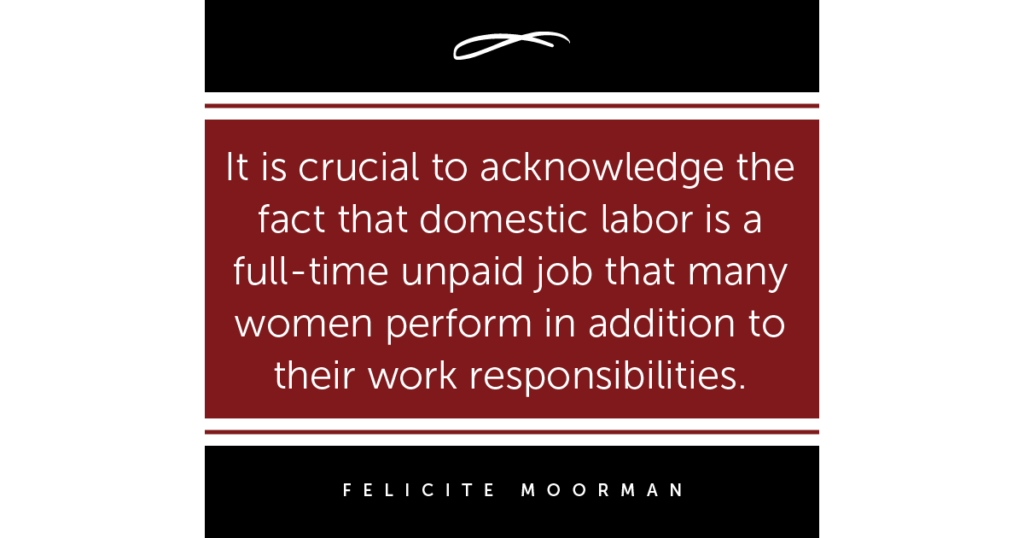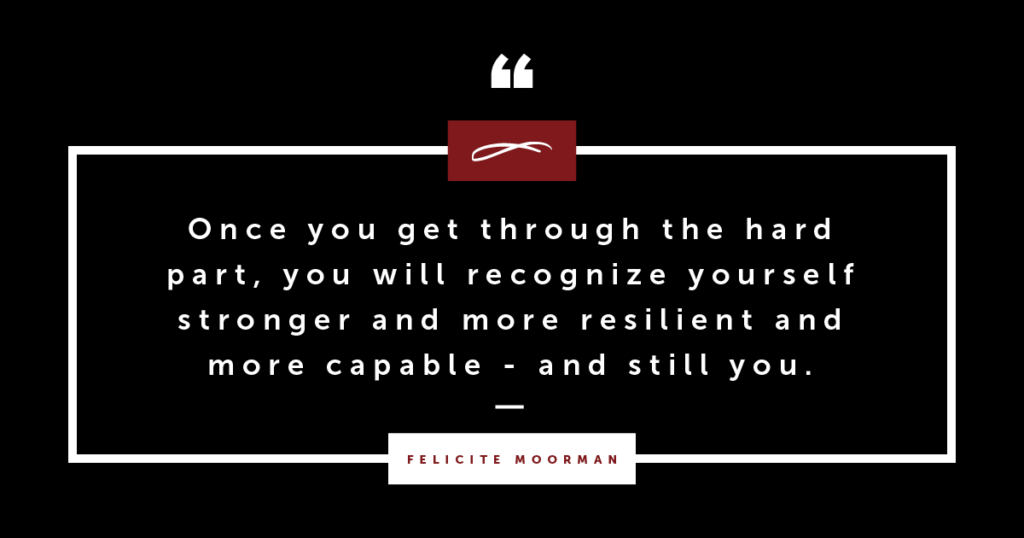Women’s entry to the workforce between the 1930s and 1950s introduced a new conception of family life: married-couple families with two working parents, rather than a sole (male) breadwinner. In tumultuous times, such as wars and recessions, women’s participation in the labor market has historically increased, and up until March 2020, women had lower unemployment rates than men. The COVID19 pandemic has hit the economy hard – and women are disproportionately affected by this economic downturn.

The cultural norm of a nuclear family, where women take on most of the domestic labor, is forcing women to make difficult career decisions. A 2012 research paper from the Federal Reserve Bank of Kansas City observed the business cycle’s impact on men vs. women, finding that “when the economy gets worse, women’s contributions at home can be more valuable than their paychecks.” This isn’t entirely true, since women statistically work in industries less subject to the business cycle, and recessions tend to hit certain sectors harder than others. But the COVID19 pandemic is entirely unprecedented, and the complicated relationship between women’s careers and familial responsibilities is relevant. With childcare options such as babysitting, daycares, schools, and camps no longer available, many families, especially mothers, are juggling parenting and teleworking. It is crucial to acknowledge the fact that domestic labor is a full-time unpaid job that many women perform in addition to their work responsibilities.
That’s not the only setback for female professionals. During the Great Recession, male-dominated industries such as manufacturing and construction were most affected. Now, the industries that employ the most women – leisure and hospitality, retail, service, and government jobs – have been hit harder. Women of color are impacted even more: 14% of Black women are unemployed, while only 10.3% of White women are unemployed. And women of color, who already receive lesser salaries than White women, predominate service sectors – which are likely to be the slowest to re-employ workers.
What questions does this raise for the future of female leadership and career growth? 2020 college graduates, and lower-wage majors, the majority of which are women, will feel the impact of this pandemic for the rest of their careers. Women are excluded from June’s economic rebound, having lost more than 12.1 million jobs because of COVID19 with only ⅓ of those jobs returning in May and June. Efforts towards women’s inclusion in the workforce over the past several decades have been wiped out over the course of just a few months. And with the inevitably slow return of the female-majority industries, combined with uncertainty around childcare, there is increasing concern over the “gap in leadership pipelines” as a result of women stepping out of the workforce.

A millionaire at 30 but financially decimated by 35, the 2008 global economic recession wasn’t just a blow to my career – it was a blow to my concept of self. I took the recession personally, and was devastated and ashamed to have lost what I worked so hard to build. That type of thinking is antithetical to action. We tie our identities to our careers in the US, and the loss of a job/career path/business is inextricably linked to our sense of self. It’s important to realize that once you get through the hard part, you will recognize yourself as stronger and more resilient and more capable – and still you.
In the coming months, we’re going to explore ways to accelerate and amplify each other’s efforts, actions, and even entrepreneurship – and take back our time. If you’ve had to reprioritize and drop your career, you don’t have to lose your traction. No mourning, no dropping skills. Now is the time to innovate.
The question we should be asking isn’t, “How do we get back what we lost?” Instead, how do we leapfrog from where we were, after so many hard-earned gains, and reach what we deserve: real equality and equity in our careers.
How do we accelerate beyond it? What can we eliminate in the systems that are crumbling? What can we do differently? The working mom’s pretty facade is crashing down, and it’s time to normalize children being part of the conversation about work and what the future of work looks like. Now is the time to reconsider our cultural notions of how a family should exist, and what work/life balance means for working moms (and dads!). Without women bearing the load of parenting responsibilities at the expense of their careers, how can we reinvent work around having kids? The compartmentalization of work responsibilities and familial responsibilities is undeniably rooted in archaic gender roles, a norm that is being proven obsolete in today’s climate. Now is a time for individuals, families, companies, and society as a whole to seek a more holistic approach to structuring work and family life.

